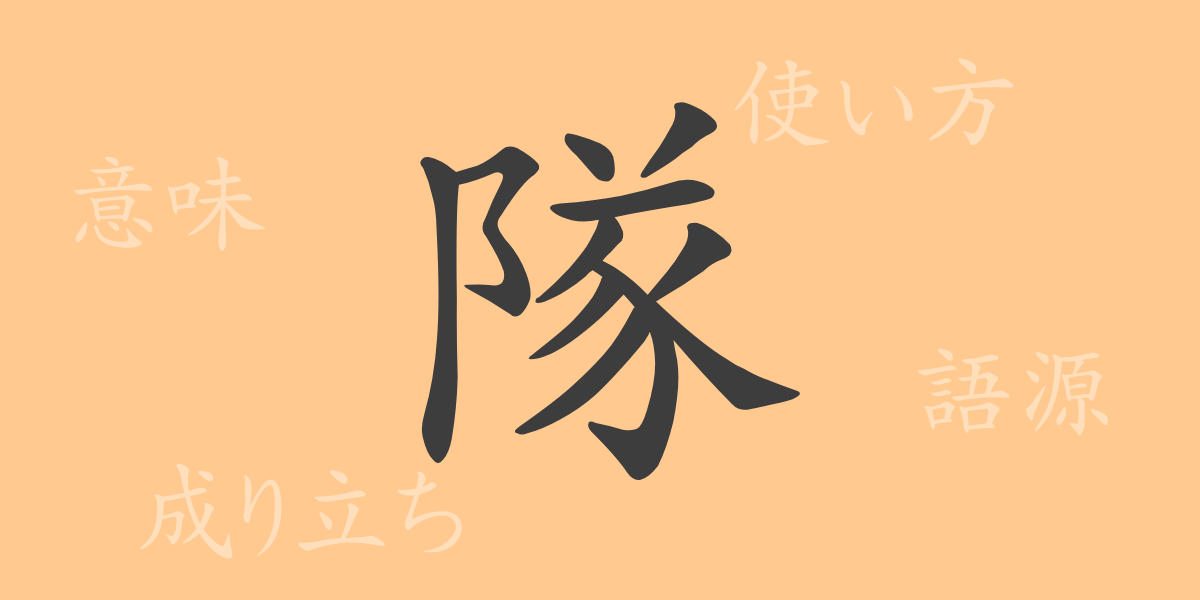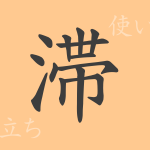The Japanese language boasts a plethora of kanji, each with its own unique history and meaning. ‘隊’ (たい) (tai) is one such kanji commonly seen in everyday life. In this article, we delve into the origins of ‘隊’, exploring its meanings, usages, pronunciations, and even phrases and proverbs that feature this kanji, unveiling the profound world embodied by a single character.
Origins of ‘隊’ (たい) (tai)
The kanji ‘隊’ traces back to ancient China. Originally representing the orderly lines of military troops, it depicted many people lined up in an organized manner. Over time, ‘隊’ came to denote organized groups maintaining order and enabling efficient action, and is now used to refer to any organized group.
Meaning and Usage of ‘隊’ (たい) (tai)
In modern Japanese, ‘隊’ is used to denote a group or team with a specific purpose or function, such as ‘消防隊’ (fire brigade) and ‘救助隊’ (rescue team). It is also employed in military contexts to refer to a small group of soldiers.
Pronunciation, Stroke Count, and Radical of ‘隊’ (たい) (tai)
Let’s look at the fundamental details of the kanji ‘隊’:
- Reading: On’yomi is ‘タイ’ (tai), there are no common Kun’yomi.
- Stroke Count: ‘隊’ consists of 12 strokes.
- Radical: The radical is ‘阜’ or ‘阝’ (こざとへん) (kozatohen), associated with hills or mounds.
Phrases, Idioms, and Proverbs Using ‘隊’ (たい) (tai) and Their Meanings
There are many phrases and idioms that include ‘隊’:
- 消防隊 (しょうぼうたい) (shōbōtai): A team specialized in addressing emergencies like fires.
- 遊撃隊 (ゆうげきたい) (yūgekitai): A small, mobile unit designed to strike the enemy unexpectedly in wartime.
- 応援隊 (おうえんたい) (ouentai): A group that supports a specific team or individual during events like sports.
- 掃討隊 (そうとうたい) (sōtōtai): A unit tasked with eliminating enemies or harmful elements from a specific area.
These terms reflect the organizational and systematic qualities associated with the kanji ‘隊’.
Summary on ‘隊’ (たい) (tai)
The kanji ‘隊’ encompasses more than its literal meanings, originating from a military background and now used to describe various specialized groups and organizations. Its readings, stroke count, and radical highlight its deep roots in Japanese culture and language. Everyday usage of terms including ‘隊’ reaffirms its relevance and familiarity in our daily lives, enhancing our appreciation of the depth and utility of this kanji.

























